What happens when students from different continents join forces with Ugandan communities to co-create sustainable solutions? This summer, we found out.
From June to August 2025, FOSCOD hosted an inspiring cohort of international interns who worked alongside grassroots partners and community members in Jinja and Buikwe District. This year’s group included students from Northwestern University’s Global Engagement Studies Institute (GESI) program, as well as an independent intern supported through the Pulitzer Center and Fort Lewis College (USA).
Together, these interns lived with host families, immersed themselves in Ugandan culture, and co-designed projects that advanced environmental sustainability, women’s empowerment, public health, and food security. Their reflections highlight the power of combining community-driven action with cross-cultural learning.
The Johnhill team addressed fuel inefficiency, high costs, and health hazards in the school kitchen:
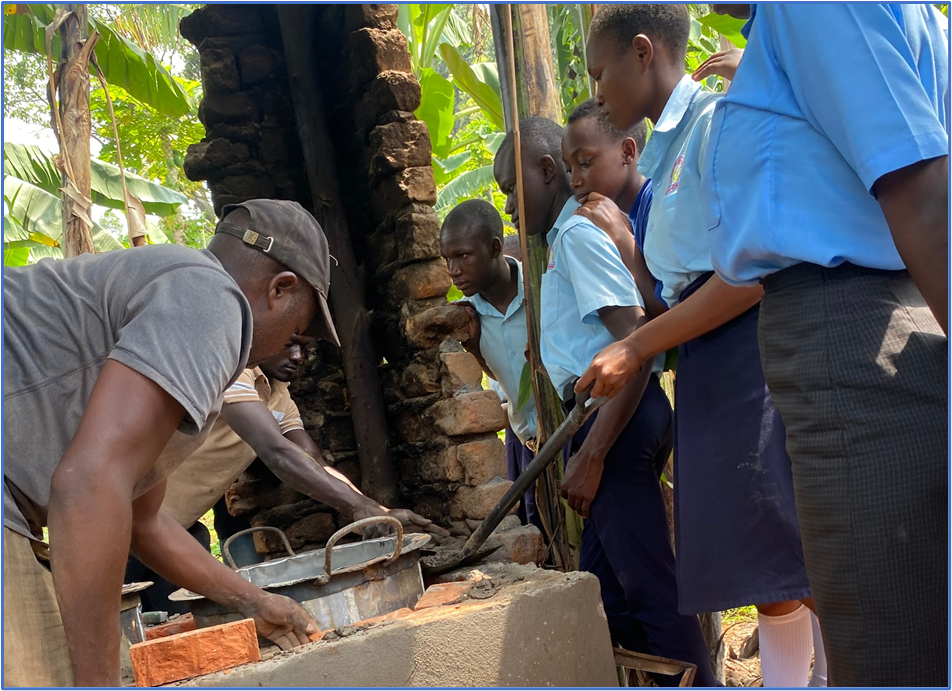
Students and staff collaborate in building an institutional energy saving stove at Johnhill SS.
Rocket Stove Installation: Constructed a large institutional firewood-saving stove, reducing wood use, smoke exposure, and cooking time.
Youth Environmental Conservation Club (YECC): Established a student-led club to sustain the stove and lead future environmental projects.
Impact: Students gained hands-on knowledge of sustainable energy. The chef reported improved cooking conditions, and the school anticipates major savings on fuel costs.
At Sustain Micro-Enterprise (SME), interns worked with over 40 women to strengthen livelihoods and independence:
Vocational Training: Women gained practical skills in tailoring and hairdressing.
Business & Financial Literacy: Sessions built women’s capacity in pricing, customer service, and record-keeping.
Community Association: The Esuubi Women’s Club was formed with a full executive board to sustain the initiative.
Impact: Women reported increased confidence, accountability, and solidarity. The program laid the foundation for a vibrant future of social mobility and investment.
“It takes a village. Whole community input drives effective change.” - SustainMe interns.
The KORD team responded to one of the community’s most urgent needs: safe drinking water.
Protected Spring Construction: Built a protected spring serving over 4,500 residents.
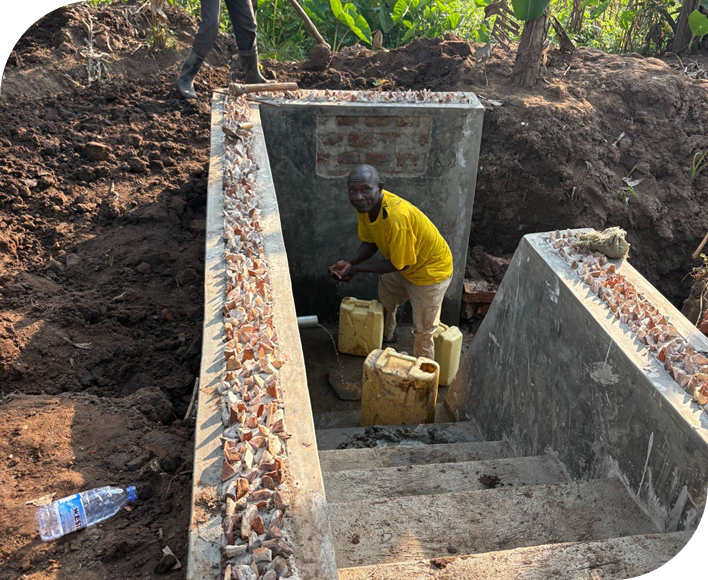
"Protected spring in Bwase Zone provides safe water to over 4,500 residents."
Impact: Families now spend less time boiling water, face fewer waterborne diseases, and gain more time for livelihoods.
WASH Promotion: Introduced low-cost tippy-tap handwashing stations and distributed hygiene education materials.
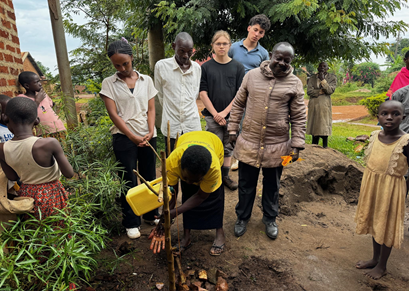
"Community WASH training with a tippy-tap handwashing demonstration. "
Water User Committee: Formed a governance body with by-laws ratified by local leaders to ensure sustainability.
“Water is fundamental – once health improves, economic growth becomes possible.” – KORD interns
Alongside the GESI cohort, Justin Price (Northwestern University, Class of 2026) joined FOSCOD through a collaborative internship supported by the Pulitzer Center.
His project, “Exploring the Impact of Sugarcane Farming on Climate Change and Food Insecurity in the Busoga Region,” applied a community-based research and storytelling approach to:
• Document farmers’ lived experiences with monoculture and land use.
• Capture narratives of food insecurity, deforestation, and power imbalances with sugar millers.
• Highlight grassroots solutions, including crop diversification, indigenous methods, and community organizing.
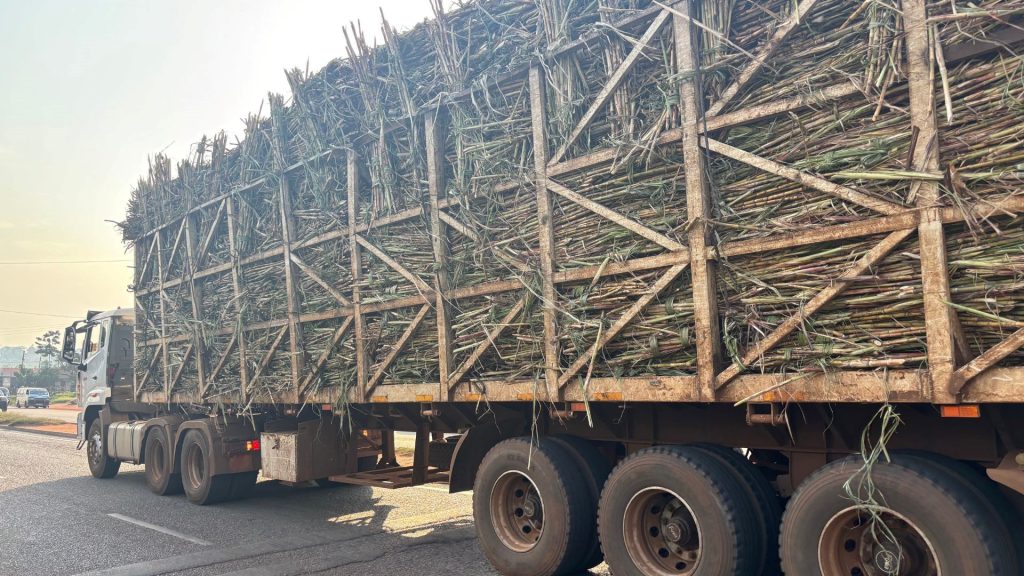
"Sugarcane truck loaded for milling - symbolizing the scale and dominance of the sugar industry in Busoga."
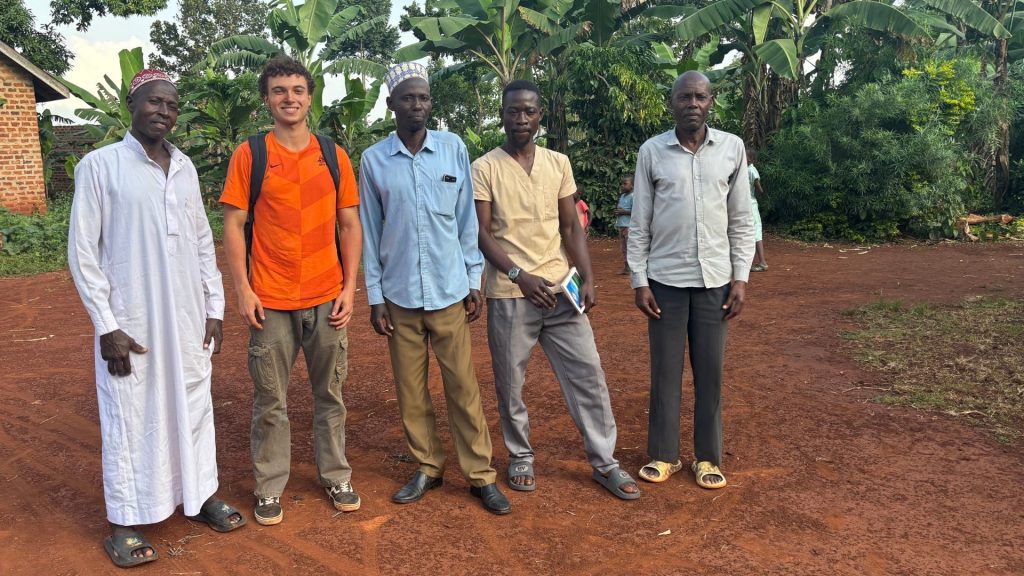
"Justin Price with local leaders in the Busoga region - showcasing grassroots engagement in research."
“Our messaging isn’t anti-sugar- it’s pro-food. We’re trying to give people a choice.” – Community voice, Busoga
Tarenina Max (Fort Lewis College, USA) completed her senior public health project with FOSCOD virtually, partnering with Johnhill Secondary School:
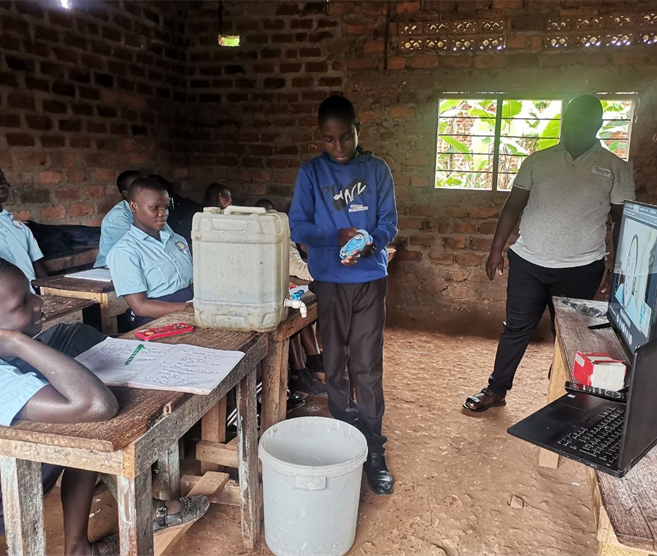
"Virtual hygiene education session: Nina connecting remotely with Johnhill SS students."
Hygiene Education: Led virtual sessions on personal, environmental, and food hygiene, with live demonstrations of handwashing techniques.
School Infrastructure: Supported plastering classroom floors to reduce dust and improve sanitation.
Student Leadership: Established a hygiene and sanitation club aligned with the school’s menstrual health club.
Impact: Students reported improved hygiene practices, increased confidence, and healthier learning spaces.
“Taught hygiene, learned humanity and resilience.” – Nina’s six-word memoir
Beyond technical outcomes, the internship was an immersive cultural and professional journey.
The 2025 internships demonstrated how global-local partnerships can produce lasting community impact while shaping the next generation of leaders. From energy-saving stoves to women’s enterprises, clean water systems to health clubs, and from investigative journalism to virtual public health promotion – these projects reflect FOSCOD’s mission to foster authentic, community-based development.
As we look forward, FOSCOD welcomes partners, universities, and students to join us in 2026 and
beyond, building on this momentum of learning and impact.
Empowering Communities with renewable energy and environmental sustainability, bridging global learning with local innovation
info@foscod.org
+256 753449450
Jinja, Uganda
Stay updated with our latest news and updates.
© Copyright Foundation For Sustainable Community Based Development 2024 – Designed and Powered By Shakes Digital